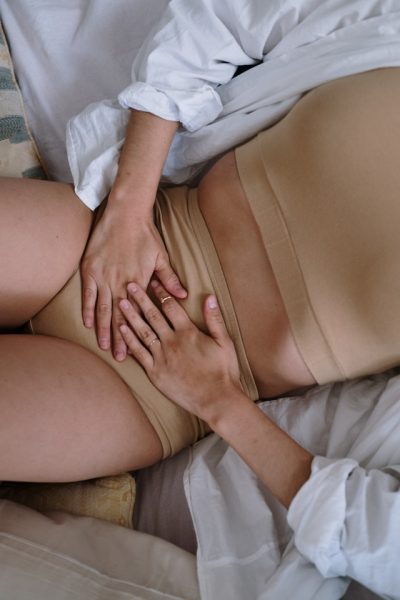Are you still getting your period? Period pain is common and a normal part of your menstrual cycle – more than half of women who menstruate report having abdominal or pelvic pain during this time. Painful cramps are usually felt in the abdomen but can also spread to the back and thighs. Usually, the pain is mild and doesn’t require medical intervention.
However, if you still feel like you could use some remedies and tips on dealing with strong cramps, the good news is that many home remedies can help relieve the pain. After all, there’s no point in letting your period dictate the order of your day or make a dent in your routine.
Women, unlike men, can’t resort to learning how to use a prostate massager in order to help reduce pelvic pain and tension. They can, though, try solutions such as heat patches or hot water bottles that can provide a great deal of relief if the cramps get to the point where it’s hard to ignore them any longer. Check out the article below to learn about five effective and natural ways to help alleviate your period cramps.
Use Heat Patches or Hot Water Bottles
If you’re feeling uncomfortable and your cramps are starting to bother you, heat patches or hot water bottles can help provide some relief. The heat helps relax the muscles and nerves in your abdomen. As a result, cramps are more likely to become less severe. In addition to this, heat helps to increase blood flow to your lower abdomen. Therefore, if you’re looking for a way to relieve pain during your period, heat patches and hot water bottles are good options.
You should be able to find hot water bottles in any home-goods store you go to. When it comes to heat patches, you can easily purchase them online in bulk or at your local drugstore. However, you should be careful when using both these options. Never fill your bottle with boiling water, as it can damage the seams of the bottle and add to the risk of burns. Heat patches can also cause burns. If you notice any swelling or rash when using them, immediately take them off your skin and consult a doctor or a pharmacist.
Eat More Iron-Rich Foods
It’s common to experience a low iron level during your period, especially if your menstrual flow is heavy. This can lead to symptoms like fatigue, bodily pain, and dizziness. Hemoglobin is essential for transferring oxygen in your blood from the lungs to the tissues. If your periods are particularly heavy, you lose more iron during that time. This makes your hemoglobin drop and can cause iron-deficiency – anemia.
Therefore, you could try to eat meals that include red meat, chicken and fish, leafy greens, nuts, dates, or raisins to boost your iron levels when you’re menstruating. Certain foods, such as spinach and lentils, are rich in iron which plays an essential role in hemoglobin production.
Switch to Light Exercise
If you’re exercising regularly, try to avoid this during your period. Although exercise can help ease menstrual pain and constipation, doing heavy exercise while menstruating might worsen your cramps. Therefore, if you’re active before or during your period, try to slow down a little bit or take a break altogether. Instead of doing a heavy-lifting routine, you can go for something lighter, such as yoga.
While yoga might not be the first thing you think of when you have cramps, it is one of the most effective ways to reduce pain caused by menstruation. Yoga is an excellent way to relieve period cramps because it focuses on the overall wellbeing of the body and mind. For example, you can use particular yoga poses to improve circulation and reduce stress levels by encouraging breathing exercises and relaxation techniques.
Try Herbal Teas
You can use many plants and herbs to relieve period pain and ease menstrual cramps. For example, chamomile tea is a popular remedy that helps reduce fatigue, calm the nerves, and induce sleep. Anecdotal evidence also suggests that red raspberry leaf tea may strengthen the uterine walls and, therefore, alleviate premenstrual symptoms.
When drinking herbal teas, try not to exceed 3 to 4 cups a day. Drinking too much tea can reduce your iron absorption or cause heartburn or nausea. You can also switch between drinking tea and plain water during the day to make sure you stay hydrated.
Get Enough Sleep
Getting enough sleep is vital for overall health and wellness as well as managing period pain. Therefore, it’s recommended that you get at least seven to eight hours of sleep every night during menstruation. Not only will this allow your body to relax, but it will also energize you for the next day.
On top of that, menstruating women who sleep less than six hours a night tend to suffer heavier and irregular periods. To take pressure off your abdominal muscles and relieve tension, try to sleep in the fetal position by rolling to your side and tucking in your arms and legs.
Conclusion
Period pain is a common condition that many menstruating women have to deal with. There are many ways to deal with the pain, such as over-the-counter pain relief medications; however, some people prefer more natural methods.
Fortunately, there’s no shortage of them. Heat patches and hot water bottles are highly effective and inexpensive, as are herbal teas. If you’re used to exercising regularly, you might consider switching to a lighter form of physical activity during your period. It also might be worth making some dietary changes or getting more sleep during this time.


